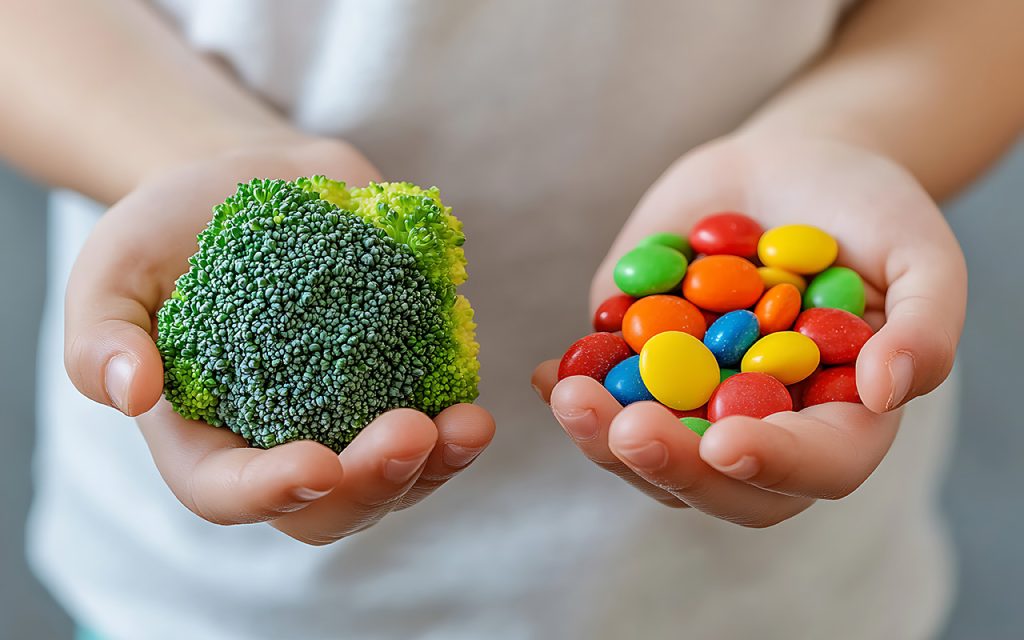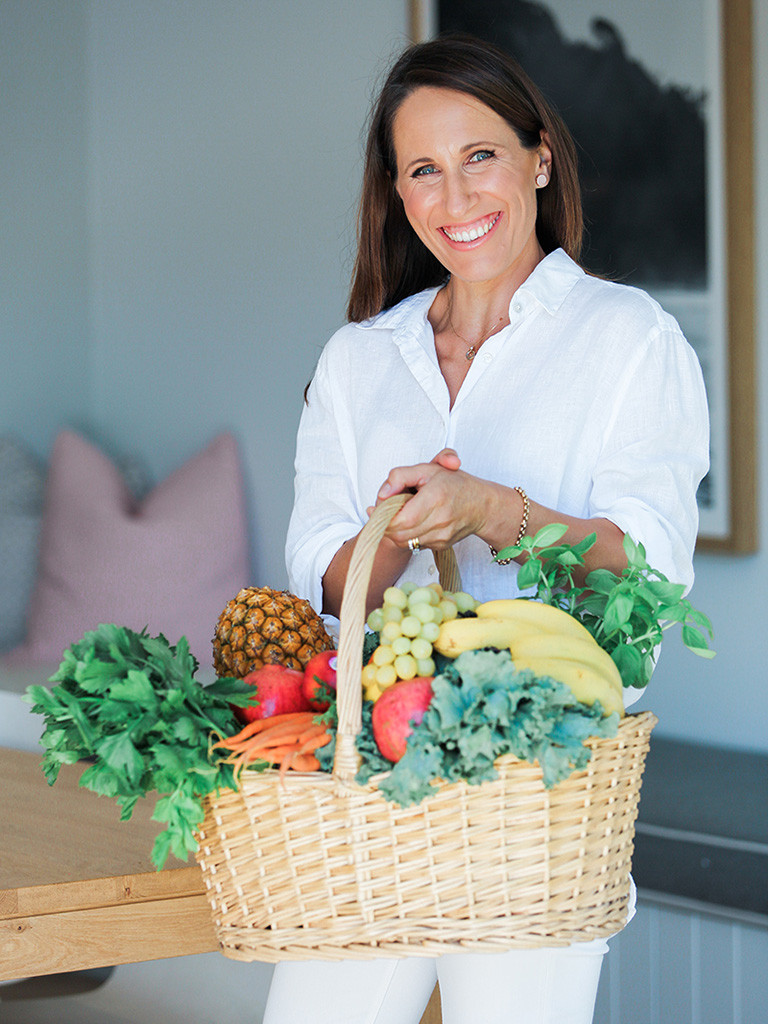How to talk about healthy eating with your kids

If you grew up in the ‘80s, ‘90s, or early 2000’s, chances are you were taught to see food through a moral lens: veggies were “good,” chocolate was “bad,” and fat was something to fear. That messaging stuck.
So now, when you reach for a bag of chips after a long day or say yes to dessert, a quiet voice in the back of your mind is likely to whisper: “You shouldn’t.” You feel like you’ve done something wrong – simply for eating something you enjoy. And here’s the thing: our kids are watching. They’re listening. The way we talk about food becomes the way they relate to it.
If you want to raise confident eaters, it’s time to let go of the “good” vs “bad” food narrative and allow your kids to enjoy food without guilt or shame. Let’s be real; some foods are more nutrient-dense than others. But that doesn’t mean that we need to rank them on a scale. Instead of calling food “good” or “bad”, try talking about how it fits into the bigger picture of what our bodies need. Here are a few ways to reframe the conversation:
Use words like “everyday” and “sometimes” instead of “good” and “bad”.
This way, you’re helping kids understand balance without shame. “We eat fruits and veggies every day because they help our body grow and stay strong.” Or, “We have party food or treats sometimes; they’re fun and yummy, and there’s room for them too.”
The messaging we are trying to communicate is:
- All foods can have a place in a healthy lifestyle
- Some foods fuel us with nutrition and energy
- Other foods are more for taste and enjoyment
When we take the judgment out of food, we also take away the power it has to make our kids feel “naughty” or “out of control” around it.
Normalise treat foods
Instead of restricting treat foods, it’s important to include them in your child’s diet in a way that feels natural and balanced. When we make certain foods “off-limits,” it can create a sense of “naughtiness” around them, kind of like a forbidden fruit. The problem is that this may lead to secretive eating or a heightened desire for those foods.
By offering treats in moderation, you teach your children that even foods that are less nutritious can be part of a healthy eating pattern. This approach helps them develop a balanced mindset where food is not associated with guilt or shame.
Describe what food does, not what it is
Instead of labelling food as “good” or “bad,” focus on what each food does for the body. For example, you might say, “This chicken helps build strong muscles,” or “Carrots help your eyes see better in the dark.” These kinds of explanations help children connect food to how their bodies grow and feel.
Framing food this way teaches them that eating isn’t about being “good” or “bad”; it’s about fuelling their bodies with a mix of foods that have a purpose. This helps to build a healthy relationship with food based on curiosity and care, not guilt or shame.
Establish positive relationships with food as a family
You might not always realise it, but kids are constantly observing how you talk about food, both with them and with your partner. Many of us grew up in a culture where food was labelled as “good” or “bad,” so it can feel natural to say things like, “I was naughty for eating that,” or “I need to be good today.” These seemingly harmless comments can stick with children and start to shape how they think about food—and themselves.
Instead, try shifting the conversation to how food makes you feel. For example, rather than saying “I shouldn’t have eaten that pizza,” you could say, “That pizza really hit the spot—now I really feel like something fresh.” This kind of language shows your child that food isn’t something to feel guilty about, but rather something to enjoy and use to take care of your body. When we speak about food with curiosity and balance, we model a healthy, shame-free approach they’ll carry with them as they grow.

Karina Savage, paediatric dietitian and founder of Nourishing Kids, holds a Bachelor of Nutrition & Dietetics and a Bachelor of Science. She has 23 years of clinical experience in paediatric nutrition and is a regular guest on Channel 7’s Sunrise. Karina is also the host of The Easy Feed podcast and a published author in paediatric allergy research, specifically focusing on babies with allergies.
As a mum herself, Karina understands the never-ending worry that comes with feeding fussy babies and kids. She helps parents improve their child’s eating habits and nutrition through her program, Nourishing Kids.

